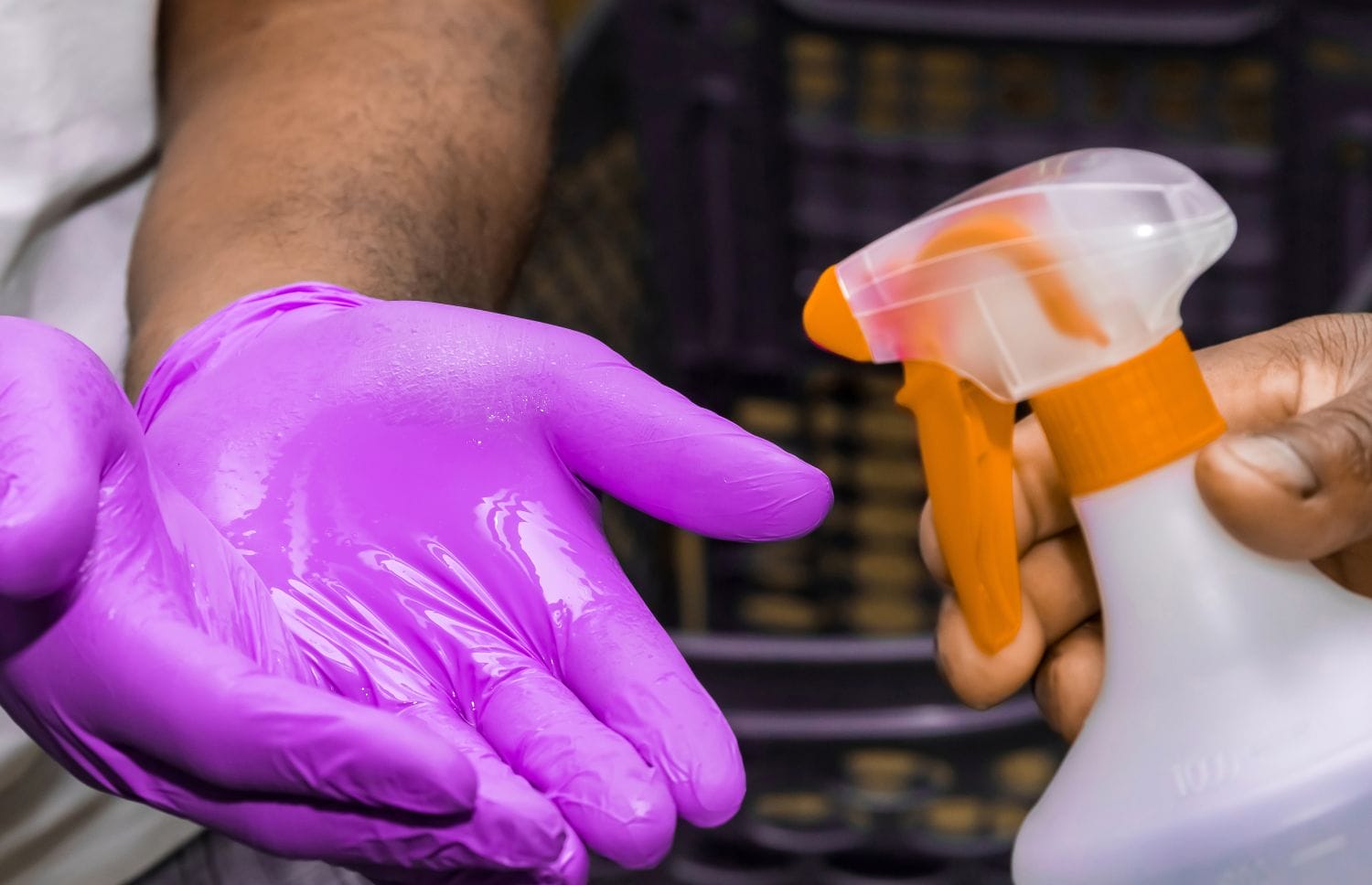What are Chemical Resistant Gloves?
Chemical resistant gloves are specialized protective gloves designed to safeguard the hands from exposure to harmful chemicals, solvents, and hazardous substances. These gloves are made from materials such as nitrile, neoprene, latex, PVC, or butyl rubber, each providing resistance to different types of chemicals. They are essential for workers handling dangerous substances in industries such as healthcare, manufacturing, automotive, and laboratory settings. Chemical resistant gloves protect against chemical burns, skin irritation, and other health risks associated with chemical exposure.
Why Chemical Resistant Gloves Matter in the Enterprise Environment
In industries where employees frequently handle hazardous chemicals, the proper use of chemical resistant gloves is crucial for ensuring worker safety and preventing accidents. These gloves provide an essential barrier against harmful substances, protecting workers from chemical burns, skin irritation, and potential long-term health issues. Enterprise software solutions can play a vital role in managing the procurement, distribution, and compliance of chemical resistant gloves, ensuring they meet industry standards and are used correctly across the workforce.
Benefits of Chemical Resistant Gloves
Chemical resistant gloves offer a range of benefits, particularly in environments where handling hazardous materials is a daily task. These benefits include:
- Protection from Harmful Substances: Chemical resistant gloves create a barrier between the skin and hazardous chemicals, reducing the risk of burns, irritation, or absorption of dangerous substances.
- Durability: These gloves are designed to withstand prolonged exposure to chemicals without degrading, making them essential for tasks involving corrosive or reactive materials.
- Specialized Resistance: Different types of chemical resistant gloves are tailored to protect against specific substances, such as acids, solvents, or oils, providing targeted protection based on the hazards present in the workplace.
- Comfort and Flexibility: Many chemical resistant gloves are designed for ease of use, offering flexibility and comfort while maintaining a high level of protection, allowing workers to handle tasks with precision.
Types of Chemical Resistant Gloves
Chemical resistant gloves come in a variety of materials, each suited to different types of chemicals and work environments. The key types of gloves include:
- Nitrile Gloves: Nitrile gloves are resistant to a wide range of chemicals, including oils, solvents, and acids. They are ideal for industries like automotive and chemical handling, offering durability and puncture resistance.
- Neoprene Gloves: Neoprene gloves provide excellent protection against acids, bases, and solvents, making them suitable for laboratory work and chemical processing. They also offer good heat resistance.
- Butyl Rubber Gloves: Butyl rubber gloves are known for their resistance to gases and toxic chemicals, including ketones and esters. These gloves are often used in chemical manufacturing and hazardous materials handling.
- Latex Gloves: Latex gloves offer protection against water-based chemicals, including certain acids and alkalis, but are less effective against organic solvents. They are commonly used in healthcare and cleaning applications.
- PVC Gloves: PVC gloves are resistant to water, oils, and certain chemicals. They are commonly used in cleaning and industrial settings where protection from non-corrosive substances is needed.
The Role of Enterprise Software in Managing Chemical Resistant Gloves
Managing chemical resistant gloves in the enterprise environment requires ensuring that workers have access to the correct type of gloves for their tasks and that they meet safety regulations. Enterprise software solutions can help automate the management of chemical resistant gloves by tracking inventory levels, monitoring glove usage, and ensuring compliance with health and safety standards.
These systems can also assist in conducting regular inspections and audits to ensure that the gloves are in good condition and are replaced when necessary. Additionally, enterprise software tools can provide training documentation and usage guidelines to ensure that employees are aware of which gloves to use for specific chemicals, further enhancing workplace safety.
Chemical Resistant Gloves vs. Other Protective Gloves
While chemical resistant gloves offer a higher level of protection from hazardous substances, other types of gloves may be more suited for different risks or tasks. Here’s a comparison between chemical resistant gloves and other protective gloves:
- Chemical Resistant Gloves: Provide protection specifically against harmful chemicals, solvents, and corrosive substances. They are tailored for use in environments where chemical exposure is common.
- Cut-Resistant Gloves: Designed to protect hands from sharp objects and reduce the risk of cuts, these gloves are used in industries like construction and manufacturing but do not offer protection against chemical exposure.
- Heat-Resistant Gloves: Provide protection from high temperatures and are commonly used in industrial settings where workers handle hot materials. These gloves are not designed to protect against chemicals.
- Disposable Gloves: Latex, vinyl, and nitrile disposable gloves are often used in healthcare and food service for hygiene and contamination prevention. However, disposable gloves may not provide sufficient protection from chemicals depending on the material.
Key Industries Using Chemical Resistant Gloves
Chemical resistant gloves are used in a variety of industries where workers come into contact with hazardous chemicals, including:
- Healthcare: Medical professionals use chemical resistant gloves when handling disinfectants, hazardous drugs, and other chemical substances used in cleaning and treatment processes.
- Manufacturing: Workers in manufacturing plants wear chemical resistant gloves to protect against solvents, lubricants, and corrosive materials used in production processes.
- Laboratories: Lab workers handling acids, solvents, and other chemicals rely on chemical resistant gloves to prevent exposure and ensure safe handling of materials.
- Automotive: Mechanics and automotive workers use chemical resistant gloves to protect against oils, solvents, and chemicals encountered during vehicle maintenance and repair.
- Chemical Processing: In industries where chemical production or processing is involved, workers use specialized chemical resistant gloves to handle hazardous substances safely.
Conclusion
Chemical resistant gloves are essential for protecting workers from harmful chemical exposure in various industries, from healthcare and manufacturing to laboratories and automotive. By providing a barrier against dangerous substances, these gloves help prevent injuries, chemical burns, and long-term health risks. Enterprise software solutions can streamline the management of chemical resistant gloves, ensuring that businesses maintain adequate supplies, comply with safety regulations, and provide the right protection for their employees. In industries where chemical exposure is a daily risk, chemical resistant gloves are an indispensable tool for safeguarding worker health and safety.
« Back to Glossary Index

















